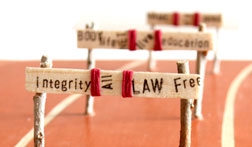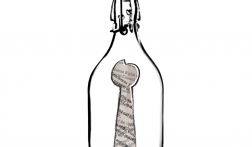Legal assistance must not be viewed as a privilege - it is a human right.
The law and its systems are incredibly confusing and almost impossible to navigate without legal assistance. If you think your human rights have been violated, would you know how to use the law to stop the violation and seek compensation? Would you know which court to file which documents in, when these documents need to be filed, and how to present your evidence to the court? How would you make sense of all the legal jargon?
Then imagine if you’re a child mixed up in all this. If children are to enjoy their human rights it’s vital they are able to use and trust the legal system. Lawyers provide children with a means to understand legal proceedings, defend their rights and make their voices heard - whether the child is accused of breaking the law, or is a victim, complainant or witness.
Below is some introductory information on legal assistance, and scroll down for information on how to get it. We also have a page with examples of when legal assistance has helped children defend, promote and protect their rights to help further explain its importance, and a guide that you can download on how to get it as part of our legal guides series.
What is legal assistance?
This is where a trained legal professional gives you information and advice about your rights, how the legal system works and how it will affect you. It is a good idea to seek legal assistance if you come into contact with the law in any way - including as a defendant (as in you have been accused of committing a crime), or as a claimant/plaintiff (where you are seeking justice for violations of your rights - eg suing a person or institution).
Ideally you would get legal assistance from a lawyer who specialises in the specific area of law concerned. For example, a criminal lawyer if you are accused of a crime, a civil law (sometimes called ‘tort’ law) specialist if you are suing someone or a human rights lawyer if you are specifically claiming under human rights law.
When it comes to children’s rights, ideally you want a lawyer who has experience and a good proven track-record of working with children and defending and promoting their rights.
Where can you get legal assistance?
There are a variety of places where you can get legal assistance, but if you are on a budget or require free legal assistance your choices may be more limited.
CRIN’s directory contains contact details and information for children’s rights lawyers, legal clinics and pro bono services all around the world.
Law societies or Bar Associations in your country can be a good place to start, but just keep in mind that costs are usually associated by hiring most lawyers.
Legal aid services. This is where the State provides you with legal assistance free of charge. The UN has said that all countries should establish systems where people can access legal aid. Where countries do have State-run legal aid services, they are usually means tested - so you apply and based on your ‘means’ (ie the amount of money and assets you have) the State decides whether you will get legal aid. Country specific information on this will be available through our access to justice for children page.
‘Pro bono’ lawyers. This is where a lawyer will provide you with legal assistance free of charge. This is not dependent on the State so it is different from legal aid. This can be done through a pro bono clearing house (an organisation that matches claimants to lawyers they have in a database) a legal clinic (sometimes provided through university law schools or contingency fee or conditional fee arrangements (where you agree with a lawyer up front that you will only pay fees if you win the case).
Legal clinics
Many universities, law schools and NGOs run programmes offering free legal advice and assistance. Legal clinics vary widely in their reach and focus; some may offer only direct service to individuals, while others are willing to undertake broader legal assistance including children’s rights work. Where these organisations work with children, they can be an invaluable resource to uphold children’s rights. With this in mind, CRIN has produced a number of resources on legal clinics to help those seeking advice and for organisations looking to develop their legal advocacy.
You can access our resources on legal clinics for children here.
Where can you find contact details?
In addition to your country’s law society or Bar association, CRIN’s directory contains contact details and information for children’s rights lawyers, legal clinics and pro bono services all around the world.


